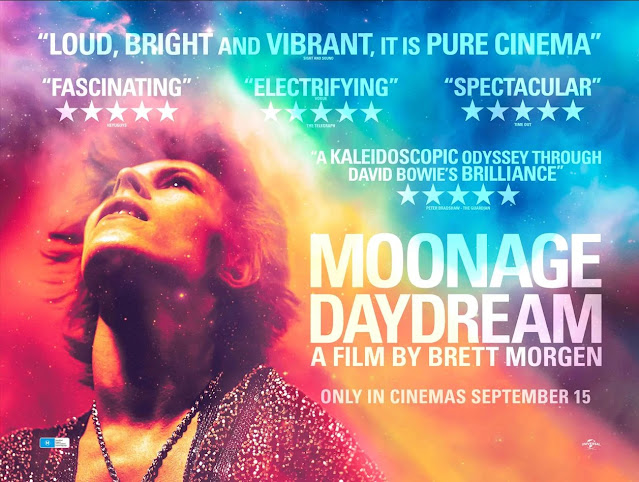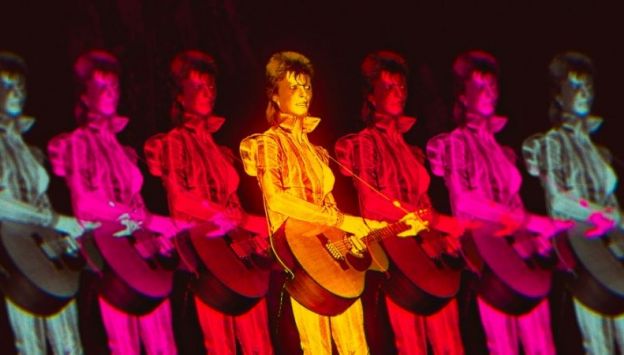Great clips- shame about the presentation
The only likely way anyone could satisfactorily encompass the length and breadth of David Bowie’s career is a ten- part documentary series. Moonage Daydream is a two and a quarter hour long montage of some of his best bits albeit with notable omissions. The clips are great and like many a modern documentary you wish we could just watch them in the best quality possible but as ever we have a director with some ideas of his own. Brett Morgen appears to have been inspired by Bowie’s own preference for cut up imagery, mixing and matching material to create something new. It worked so well for the singer, less so when it comes to a film about him. The results are a bit of a cheat- yes you get to see some rare footage but you also have to sit through increasingly irritating visual gimmickry that makes even the `Little Wonder` video seems normal. I suppose you could say that it is an achievement to make Bowie seem less interesting than he was!
From the start the film draws extensively from the singer’s recorded interviews over the years yet these out of context and it soon becomes clear that this is going to be one of those features which makes you as aware of the director as you are the subject. For investigative journalism that works but when you are presenting what is essentially a pot pourri of moments from an extraordinary career you want to see a lot more of David Bowie and a lot less of Brett Morgan’s interpretation.
The director’s obvious choice of kitsch
fifties and sixties sci-fi to illustrate every period of Bowie’s career is too
obvious and post` Space Oddity` / Ziggy doesn’t fit. Otherwise, he loves coloured
shapes that make you feel as if you’ve been sucked into a lava lamp. Ultimately
these visual intrusions detract rather than enhance the material. Its eye poppingly colourful yet ignores the shadowy, darker side of some of Bowie's music and after a while just becomes annoying.
The film traces his story with clips and
Bowie’s own voice yet there’s no clue as to where the quotes originate – Morgan
uses them to try and create a linear commentary. Bowie famously contradicted
himself so when we hear him talking about, say making the music he wants to
make, you don’t know if he said that in 1973, 1983 or 1993. Also, Bowie didn’t give
any interviews for the last period of his career so there’s nothing to say
about that. There is also very little
context outside of Bowie himself– indeed the only other two people the chosen
quotes mention are Brian Eno and Iman. When you consider how much he
collaborated with others their absence seems odd. Perhaps Morgan wanted to
avoid the traditional approach but a way of finding space for some thoughts
from the likes of Tony Visconti (especially regarding Bowie’s later period),
Reeves Gabrels, Nile Rogers and others would have been appropriate.
With full access to Bowie’s official archive, the clips are worth seeing the film for with some rare or unseen footage that by focussing on live performance shows the full power of his vocals and on stage skills and you can really see appreciate how amazing these shows must have been in the Seventies. There’s also footage of press conferences and some more familiar clips from the likes of the 1975 documentary Cracked Actor and the 1983 tour film Ricochet. The film flares into excitement only when we see the singer performing or making public appearances. That David Bowie was an intriguing, charismatic character, the David Bowie this film shows is not that at all.


No comments:
Post a Comment